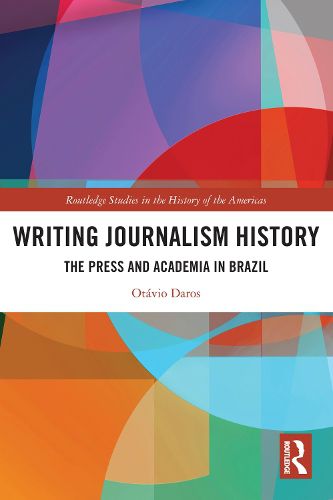Readings Newsletter
Become a Readings Member to make your shopping experience even easier.
Sign in or sign up for free!
You’re not far away from qualifying for FREE standard shipping within Australia
You’ve qualified for FREE standard shipping within Australia
The cart is loading…






This book examines the trajectory of the historical knowledge about journalism produced by its scholars in Brazil, from the early accounts originating from the Brazilian Historical and Geographic Institute in the 19th century to the specialized academic field at the turn of the 21st century.
The history of journalism historiography shows that during the Empire and the Old Republic, the press was idealized as a means of education and a form of mirror of events. After the New State, there was a tendency to view it as an instrument for manipulating public opinion and a suspicious documentary source in the eyes of historians. Finally, with the end of the Military Regime, and with the emergence of the area of communication studies, it came to be analyzed as an element of mediation of public debate and a space for sociability. Regarding this last phase, Daros argues that despite aspirations to subordinate journalism history to communication history, the field still lacks more significant historiographical undertakings beyond print media.
This volume is aimed at scholars of journalism studies and media history, the historiography of the press and journalism, the history of historiography, and Brazilian historiography.
$9.00 standard shipping within Australia
FREE standard shipping within Australia for orders over $100.00
Express & International shipping calculated at checkout
This book examines the trajectory of the historical knowledge about journalism produced by its scholars in Brazil, from the early accounts originating from the Brazilian Historical and Geographic Institute in the 19th century to the specialized academic field at the turn of the 21st century.
The history of journalism historiography shows that during the Empire and the Old Republic, the press was idealized as a means of education and a form of mirror of events. After the New State, there was a tendency to view it as an instrument for manipulating public opinion and a suspicious documentary source in the eyes of historians. Finally, with the end of the Military Regime, and with the emergence of the area of communication studies, it came to be analyzed as an element of mediation of public debate and a space for sociability. Regarding this last phase, Daros argues that despite aspirations to subordinate journalism history to communication history, the field still lacks more significant historiographical undertakings beyond print media.
This volume is aimed at scholars of journalism studies and media history, the historiography of the press and journalism, the history of historiography, and Brazilian historiography.